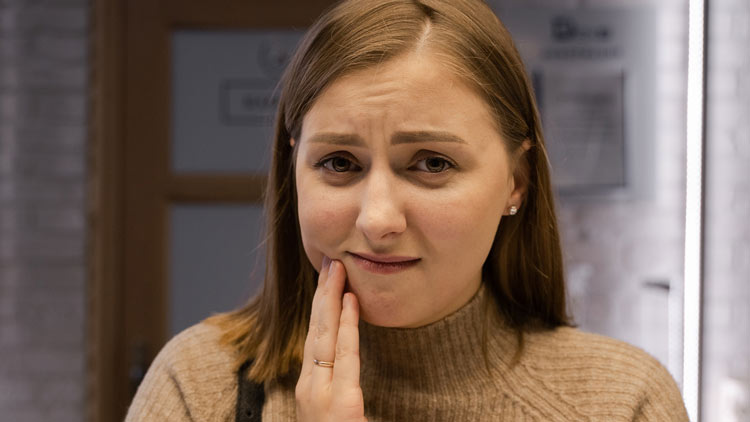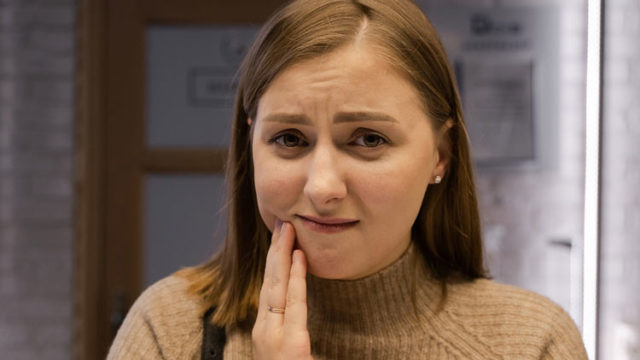
If you’ve ever felt tooth discomfort after taking a bit of something cold or hot, it could be a sign of a cavity. However, many simply suffer from tooth sensitivity but have otherwise healthy teeth. It’s important to work with a dentist to understand what the cause of this might be, but here’s a breakdown of everything you need to know about tooth sensitivity.
Common Triggers of Sensitive Teeth
There are a variety of factors that can result in tooth discomfort and sensitivity. The pain or discomfort can be anywhere from mild to intense and are most commonly a response to:
- Food or drinks that are hot
- Food or drinks that are cold
- Cold air
- Foods that are very sweet or sugary
- Acidic foods or dinks
- Brushing and/or flossing
- Mouth washes with alcohol
Causes of Sensitive Teeth
The truth is that some people simply have more sensitive teeth than others. However there are definitely somethings that can cause sensitive teeth issues to become more prominent. The enamel on your teeth is a major factor that can influence tooth sensitivity. If your enamel is getting worn down this can cause these sensitivities. Here are some ways your enamel might be getting worn down.
- Brushing your teeth too hard or vigorously
- Using a toothbrush with hard bristles
- Grinding and clenching of your jaw during sleep
- High intake of acidic foods and drinks
- Gum recession can expose more vulnerable parts of the teeth
- Conditions like GERD (gastroesophageal reflux) can wear down your tooth enamel
- Decay, chipped or cracked teeth can leave your tooth more exposed
There are a variety of causes, but it is important to find the issue in order to better treat it. We recommend seeing a dentist in order to figure out what is going on in your particular situation.
Treating Tooth Sensitivity
For those experiencing mild tooth sensitivity there are some things you can do yourself. First make sure you are using a toothpaste that’s made for sensitive teeth. There are a number of brands out there to choose from and these toothpastes typically do not have ingredients they can irritate or harm your tooth enamel. With mouthwash, make sure using an alcohol-free mouth rinse. In addition, softer toothbrushes are better for sensitive teeth and you should make sure that you’re using one with soft bristles.
It may take a little while before you start feeling the results of these actions and if they do not work, you will definitely want to speak with your dentist to learn about how you can resolve these issues.
If you have underlying medical conditions, then it’s important to speak with your dentist about how to counteract their impact on your tooth enamel. Receding gums and other conditions can lead to a lot of tooth sensitivity and there are ways to treat that with a prescription toothpaste. Again, speak with your dentist and find out what’s the best approach for you.
If you have any questions about tooth sensitivity or think you might be experiencing this, please feel free to reach out to us and we’ll be happy to set you up with an appointment.

 Request an Appointment
Request an Appointment

